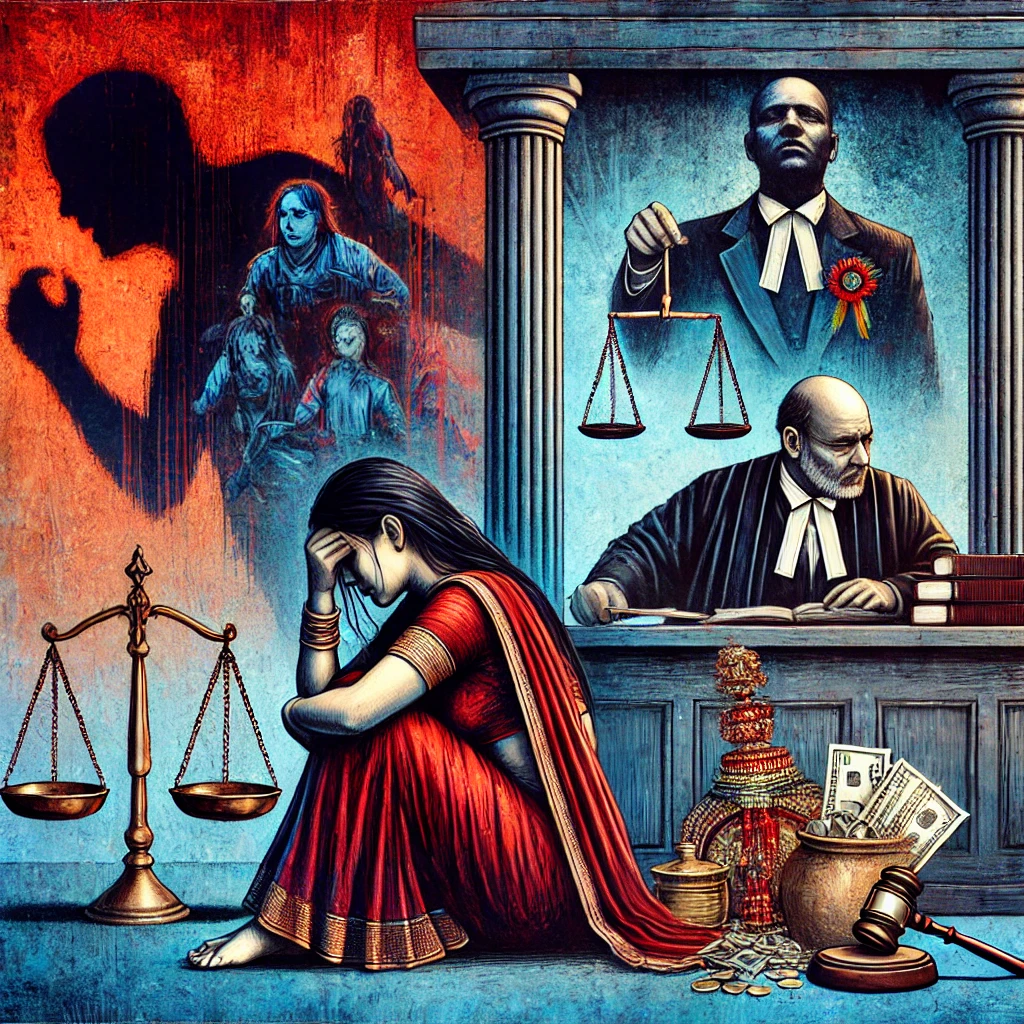Domestic Violence & Dowry Cases (Section 498A IPC & DV Act)

In India, domestic violence and dowry-related offenses are serious legal issues covered under multiple laws, including Section 498A of the Indian Penal Code (IPC) and the Protection of Women from Domestic Violence Act, 2005 (DV Act). These laws aim to protect women from cruelty, harassment, and abuse by their husbands and in-laws.
1. Section 498A IPC – Cruelty Against Women
Enacted in: 1983
Objective: To protect married women from cruelty and harassment by the husband or his relatives, particularly in connection with dowry.
Definition of Cruelty
- Physical or mental harm to a woman that can drive her to suicide or cause grave injury.
- Harassment related to dowry demands, including verbal or physical abuse.
Punishment
- Imprisonment: Up to 3 years
- Fine: As decided by the court
- Nature of the offense: Cognizable, non-bailable, and non-compoundable.
2. Protection of Women from Domestic Violence Act, 2005 (DV Act)
Enacted in: 2005
Objective: To provide quick relief and protection to women facing domestic violence from their husband or relatives.
Definition of Domestic Violence
- Physical abuse: Beating, causing injury, or any bodily harm.
- Emotional abuse: Insulting, humiliating, or mentally torturing the woman.
- Economic abuse: Denying financial support, preventing her from working, or taking away her property.
- Sexual abuse: Forcing her into unwanted sexual acts or harassment of a sexual nature.
Relief & Protection under DV Act
- Protection order: To prevent further violence.
- Residence order: Right to stay in the shared household.
- Monetary relief: Compensation for expenses, medical bills, and damages.
- Custody of children: In cases involving minors.
- Compensation: For physical and mental agony.
3. Dowry Prohibition Act, 1961
Objective: To prohibit the giving and receiving of dowry.
Definition of Dowry
Any property, money, or valuable security demanded or given before, during, or after marriage as a condition for the marriage.
Punishment for Taking or Giving Dowry
- Imprisonment: Minimum 5 years
- Fine: ₹15,000 or the value of the dowry, whichever is higher.
Dowry Death (Section 304B IPC)
- If a woman dies under suspicious circumstances within 7 years of marriage due to cruelty related to dowry, it is considered dowry death.
- Punishment: Minimum 7 years to life imprisonment.
4. Misuse of Section 498A & Safeguards
While Section 498A IPC has helped many women, there have been cases of false accusations. To prevent misuse:
- Guidelines by Supreme Court: Arrests should be made only after proper investigation.
- Family Welfare Committees: Many states have introduced these committees to review cases before arresting the accused.
- Bail provisions: Courts may grant bail if the complaint appears false or exaggerated.
5. Difference Between Section 498A IPC & DV Act
| Feature | Section 498A IPC | DV Act, 2005 |
|---|---|---|
| Nature | Criminal offense | Civil relief |
| Scope | Punishment for cruelty & dowry harassment | Protection & compensation for victims of domestic violence |
| Punishment | Jail up to 3 years + fine | No imprisonment, but protection & monetary relief |
| Who Can File? | Only wife (or her relatives) | Any woman in a domestic relationship |
| Relief Provided | Only punishment | Protection orders, residence rights, compensation |
Conclusion
Domestic violence and dowry-related cases are major concerns in India. Laws like Section 498A IPC, DV Act, 2005, and Dowry Prohibition Act, 1961 provide legal protection to women. However, there must be a balance to prevent misuse while ensuring justice for genuine victims.